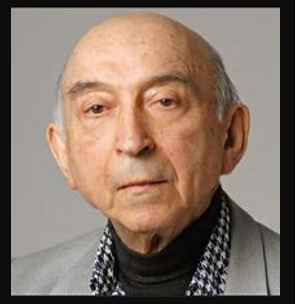
Lotfali Askar Zadeh, better known as Lotfi Zadeh or Lotfi A. Zadeh, was the founder of fuzzy logic, a mathematician, computer scientist, electrical engineer, artificial intelligence researcher, and professor of computer science at the University of California. He was (born February 4, 1921) in Baku, Azerbaijan SSR, as Lotfi Ali asker Zadeh. His mother was a Russian physician, and his father was an Iranian journalist who was working at the time for job reasons. In 1931, Zadeh was ten, and his father moved his family back to Tehran, Iran. Zadeh was enrolled in Alborz High School, a missionary school, where he was educated for the next eight years. Zadeh sat for the Iran national university exams and placed third in the nation. Zadeh is married to Fay Zadeh and has two children, Stella Zadeh, and Norman Zadeh. In 1942, he graduated from the University of Tehran with a degree in electrical engineering, one of only three students in that field to graduate that year. In 1943, Zadeh decided to leave for the United States to continue his education. He arrived in mid-1944, lived in New York and worked for an electronic association, and entered the Massachusetts Institute of Technology (MIT) as a graduate student in September of that year. He received an MS degree in electrical engineering from MIT in 1946. In 1947, as his parents had settled in New York City, Zadeh went to work as an engineer at Columbia University. Zadeh then applied to Columbia University; Columbia admitted him as a doctoral student and offered him an instructorship as well. He received his Ph.D. in electrical engineering from Columbia in 1949 and became an assistant professor the next year. Zadeh taught for ten years at Columbia and was promoted to full professor in 1957.
The chairman of the electronic engineering department at the University of California wrote and offered him work. In 1959, Zadeh joined the Electrical Engineering faculty at the University of California, Berkeley. During his long research career, Zadeh made important scientific contributions in two distinct areas:
(1) linear system theory and classical control systems, and
(2) fuzzy sets, fuzzy logic, and related science and technology.
Professor Lotfi Zadeh has a worldwide reputation as an explorer and innovator of fuzzy logic. In 1962, Professor Lotfi Zadeh first used the term Fuzzy Logic in the Journal of Engineering. Zadeh's first important research contribution, well-known among scholars of his generation in the electrical engineering community, was in the area of classical control systems. His pioneer work, co-authored with Charles Desoer, Linear System Theory: The State Space Approach, laid a critical foundation for all modern approaches to system analysis and control. The second and more well-known contribution of Zadeh's research is his lifelong dedication to the creation, enhancement, and real-world impacts of a broad collection of science and technology based on fuzzy sets and fuzzy logic. He published his seminal work on fuzzy sets in 1965, in which he described the motivation for replicating human-like reasoning and detailed the mathematics of fuzzy set theory. In 1973 he proposed his theory of fuzzy logic. Together, fuzzy sets and fuzzy logic provide the necessary foundations for a broad class of related innovations, including (but not limited to): fuzzy control-a practical approach to non-linear control using fuzzy if-then rules in fuzzy logic-fuzzy pattern recognition-a generalization of conventional pattern recognition techniques using fuzzy sets (e.g., fuzzy k-means generalizes k-means clustering)-fuzzy database-generalizes classical database query language using fuzzy sets and fuzzy logic-fuzzy mathematics-generalizes conventional mathematics using fuzzy sets and fuzzy logic neuro-fuzzy systems-a synergistic combination of fuzzy logic and neural networks, providing the first interpretable AI system based on neural network learning.
He was also one member of the Board of Governors for the International Neural Network Society (INNIS) in 2003. He was one member of the Board of Governors of the International Neural Network Society (INNIS) in 2003. Lotfi Zadeh passed away on September 6, 2017.
Numerous universities around the world have awarded honorary doctorates to Professor Lotfi Zadeh for his scientific services, especially the invention of logic.
The phase that has transformed computer science and engineering and systems theory has been appreciated.
Zadeh has received many awards, including the Honda Prize, the IEEE Medal of Honor, the IEEE Richard Hamming medal, the ASME's Rufus Oldenburger Award, and the ACM Allen Newell Award. He was a member of the National Academy of Engineering.
Professor Zadeh graduated more than 50 Ph.D. students, many of whom went on to become leaders in various areas of engineering, management, and information sciences.
These days, modern artificial intelligence science benefits greatly from fuzzy theory. The framework of humanities remained a failure and a gateway to the complex and unknown world that contemporary man he's still in the tidings. His name on the forehead of the history of science will always be immortal.
[1] www2.eecs.berkeley.edu/Faculty/Homepages/zadeh.html
[2] McNeill, Daniel; Freiberger, Paul (25 February 1993). Fuzzy Logic: The Discovery of A Revolutionary Computer Technology — And How It Is Changing Our World. Touchstone Books. ISBN:978-0671738433. LCCN:92042631. OCLC:894862117. OL:1737492M – via Internet Archive.
[3] www.fi.edu/laureates/lotfi-zadeh
"A short film about Lotfi A. Zadeh-English"


